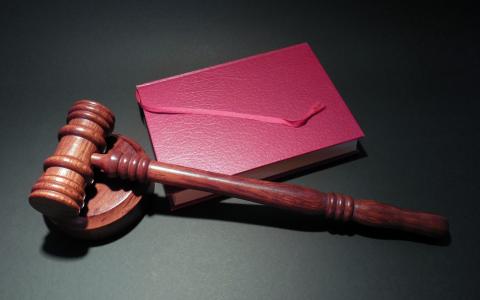
(Fortune) - In the secretive world of venture capital and startups, information means access—and it means money.
And so it’s rare that we see that closely-guarded information—the financials, the emails, the cap table—all picked apart and challenged for anyone who chooses to pay attention. It’s rare we hear a startup’s executives give unadulterated answers to questions—on the record, under oath—laying out how things really went under the hood.
We only get that kind of a look at a private company when things go horribly wrong. When, in the case of FTX, a $40 billion U.S. and international crypto exchange operation blows up. When billions of dollars suddenly disappear.
It took jurors less than five hours yesterday evening to decide that FTX’s cofounder and CEO Sam Bankman-Fried was guilty of all seven criminal charges filed against him, including wire fraud, securities fraud, and money laundering. Yesterday—the one-year anniversary of CoinDesk publishing its now-infamous story that poked the first holes in FTX’s balance sheet—the jury determined that Bankman-Fried had misappropriated $8 billion of customer assets for his own purposes, spending it on everything from luxury real estate to venture investments and risky trades. SBF’s sentencing date is set for March. (“We respect the jury’s decision. But we are very disappointed with the result. Mr. Bankman-Fried maintains his innocence and will continue to vigorously fight the charges against him,” SBF’s attorney said in a statement to Fortune.)
SBF will be remembered for committing one of the biggest financial frauds in history. And it was all made possible with venture capital dollars.
While only a few people may be responsible for committing fraud or misappropriation of customer money, there’s a host of enablers that made SBF’s wide reach possible. Celebrities gave him exposure. Journalists gave him recognition. Investors including Sequoia, Paradigm, Thoma Bravo, Temasek, NEA, SoftBank, Insight Partners, Mayfield, Lightspeed Venture Partners, and BlackRock gave him the money to scale FTX, and they secured SBF and his exchange credibility.
The very first day of testimony, Oct. 4, the prosecution had called up its first witness, a cocoa bean trader named Marc-Antoine Julliard who had personally lost $100,000 of crypto when FTX went bust last year. Juilliard explained what had compelled him to trust FTX: its size, its global presence, a Gisele Bündchen advertisement. But there was another important point in his testimony, too:
“During the course of your research did you ever learn about any investors into FTX?” one of the prosecution attorneys had asked him near the very beginning of the trial.
“Major venture capital firms seemed to have been involved in investing in the company itself, FTX,” Juilliard had responded.
“And what, if any, effect did the fact that major venture capital firms had invested into FTX have on you?” the attorney asked.
“Well, they don't commit hundreds of millions without doing due diligence, checking the books, the accountancy of the firm, going through several compliance processes, so that was also a vote of confidence for me,” Juilliard said.
Investors are well aware of the legitimacy they can offer a startup, and they use it as a selling point to get on the cap table. That was laid clear in the email exchange between Paradigm cofounder Matt Huang and SBF that was entered into evidence during the trial. In a discussion over a potential investment, Huang had written to SBF about the potential of getting “bunch of premium names on the cap table ahead of any plans to go public / make inroads into the US.”
The losses from FTX have been explained away as more or less a cost of doing business. Venture is risky, after all. Some investments don’t work out. Some founders lie.
But when it’s all laid out before us—when Julliard gets up to the stand to tell everyone how he lost $100,000—it becomes rather real. Some may refer to it as “headline risk.” But it should be thought of as much more than that. There’s a real cost to real people when we don’t ask the right questions—when we don’t do what we can, and what we should, to get the most important information and separate truth from fiction.
What Sequoia says…Yesterday after the jury made its decision that SBF was guilty, Sequoia’s Alfred Lin, who led the firm’s investment into FTX and who has said little publicly about the exchange’s collapse, tweeted about the verdict. He said that Sequoia was “pleased that the trial is over” and that they have “had to remain quiet while the prosecution built its case and through the trial period.”
“Immediately after FTX collapsed, we extensively reviewed our due diligence process and evaluated our 18-month working relationship with SBF. We concluded that we had been deliberately misled and lied to,” Lin wrote.
By Jessica Mathews



